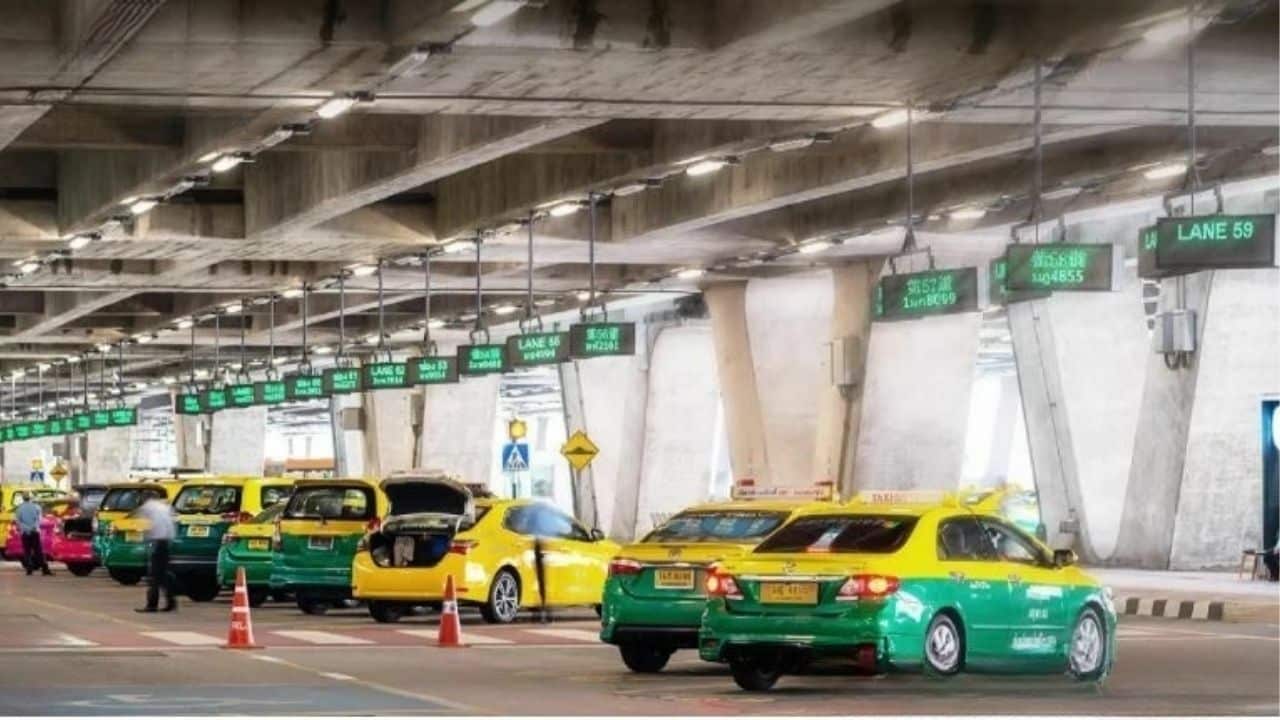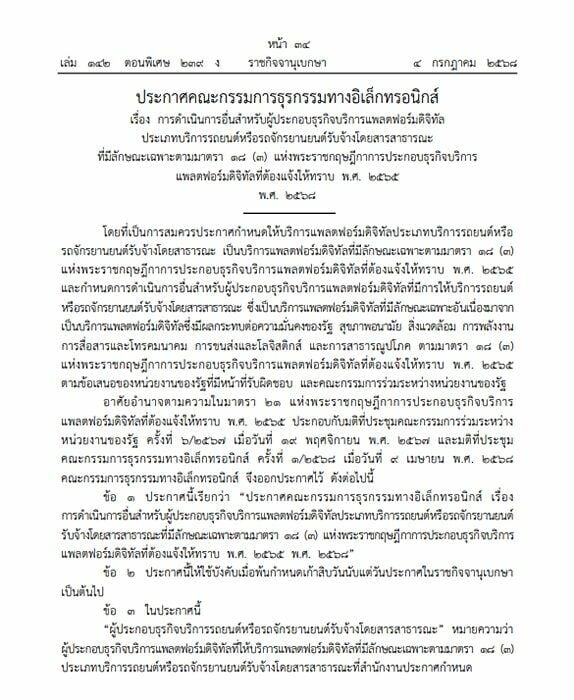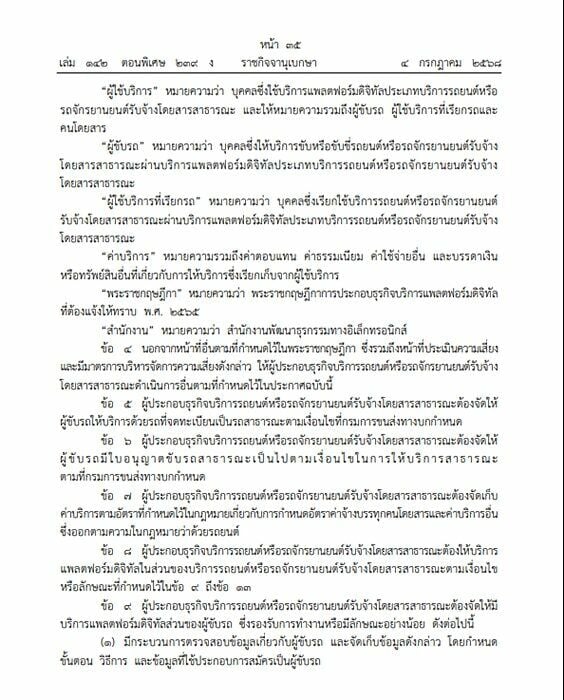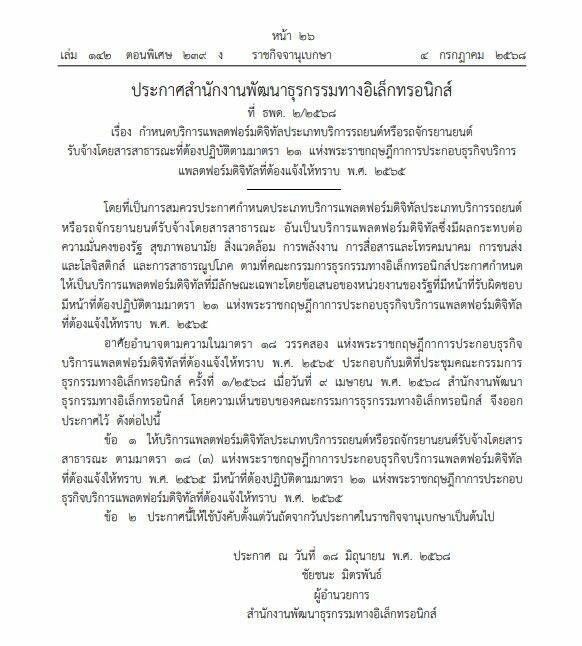New regulations for ride-hailing services in Thailand announced
Daily face scans, GPS tracking, and in-app communication are mandatory

The Electronic Transactions Development Agency (ETDA) announced new regulations for ride-hailing service providers. Drivers using such platforms must register their vehicles as public transport and possess a public transport driving licence.
These new rules will be enforced 90 days following the announcement today, July 9.
The Royal Gazette has published the ETDA’s announcement, specifying that digital platform services for public hire cars or motorcycles must comply with Article 18 (3) of the Royal Decree on digital platform business operations, issued in 2022.
This aims to ensure the security and reliability of platforms impacting state security, health, environment, energy, communications, transport, logistics, and public utilities.
The joint committee of relevant state agencies has exercised powers under Article 21 of the Royal Decree, as per resolutions from meetings on November 19, 2024, and April 9, 2025. The announcement mandates several measures for businesses operating these digital platforms.



Firstly, businesses must ensure drivers have vehicles registered as public transport, under the Department of Land Transport’s requirements. Secondly, drivers must hold a valid public transport driving licence. Thirdly, service charges must align with legal transport fee regulations.
Additionally, digital platforms must adhere to conditions outlined in articles 9 to 13 of the announcement. The ETDA further specifies that drivers using these platforms must register their vehicles via electronic systems and hold a public driving licence.
Identity verification using facial recognition is required daily before starting work. GPS location sharing is mandatory in real-time, and communication with customers must be conducted through the app only, without disclosing phone numbers.

Users of ride-hailing apps must verify their identity before use, choose vehicle types, view estimated costs, and can cancel or change destinations under specific conditions. They can also rate and file complaints against drivers.
Platforms must report vehicle numbers of each type to the Department of Land Transport annually, charge fares according to the law, and provide key information such as driver details, registration, price, and route before the journey, reported KhaoSod.
An emergency assistance button must be available for both drivers and passengers, with 24-hour staff available to handle incidents, and travel history must be recorded and displayed.
Latest Thailand News
Follow The Thaiger on Google News:


























